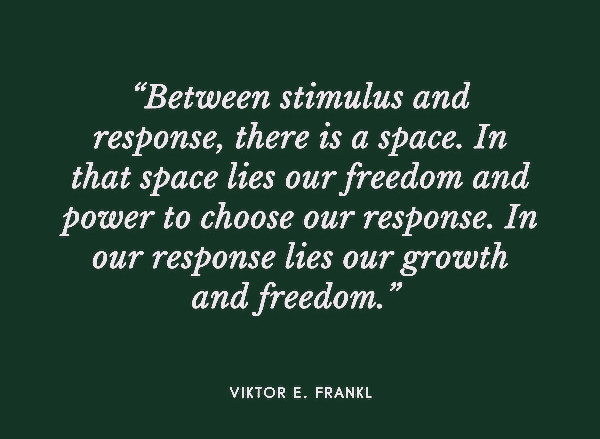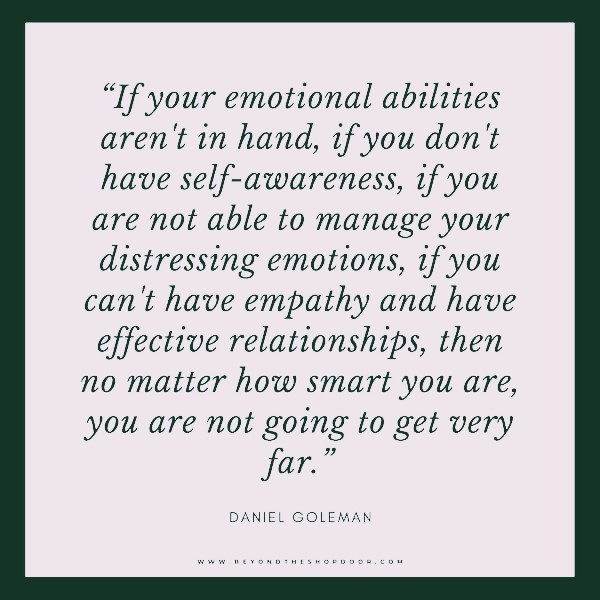

MasterChef Australia, a popular Australian competitive cooking game show based on the original British MasterChef has an activity called 'pressure tests'. During pressure tests, the contestants have to cook outstanding food with a set of ingredients and within a specific time limit.
Everything was going wrong for a very talented contestant in one such pressure test. He admitted to feeling frustrated and unable to think clearly. He was making repeated mistakes as he raced around, and his hands were shivering. His negative emotional state was coming in the way of what he was trying to achieve.
At this point, one of the judges walked up to him, pulled him aside and asked him to pause and take a few deep breaths to clear his head. Once the contestant was calmer, the judge asked him to focus on what he was trying to create. The contestant talked through his challenge, got clarity and walked back to his table feeling calmer and more in control. He then went on to complete the challenge successfully!
Managing his emotional state effectively, the contestant was able to step back into the competition with better capacity to complete the challenge.
Emotional Intelligence is our ability to manage our emotions effectively to meet our challenges in both our personal and professional lives with balance, calm and clarity. It is about being smart with our emotions!
Emotional Intelligence does not stop with just us; it is also our ability to respond to other people's emotions appropriately to nurture and sustain long-term relationships and influence others positively.
To understand Emotional Intelligence, start by understanding 'Emotions'.
Emotions are chemicals released in response to our interpretation of a specific trigger. Emotion chemicals are released throughout our bodies, not just in our brains. When we are nervous, we feel like we have butterflies in our stomachs or our heart races when we are scared.
Emotions provide you with valuable data.
Let's say you were walking down a dark road, and there was a wild dog that was preparing to attack you. Hearing a twig crunch and a low growl, you experience fear and hopefully run to a safe spot. You might have continued walking and been attacked by the dog if you did not experience 'fear'.
So, the emotion of fear signals 'there is danger lurking. Similarly, the emotion 'Anger" communicates that your needs are not being met or blocked. 'Guilt' can disclose that you are living up to someone else's expectations of you.
These emotions provide you with vital information that helps you understand yourself better. With increased awareness comes the possibility of finding better solutions to our challenges.
Therefore, suppressing our emotions or avoiding them robs us of the opportunity to enhance our self-awareness and find ways to respond vs react to the world around us.

The impact of emotional intelligence on professional success.
Emotional Intelligence is considered so critical to success that it accounts for 58% of performance in all types of jobs.
Furthermore, 71% of hiring managers say they value high EI over IQ. Emotional Intelligence was considered an essential skill for professionals in 2021 and stays as one of the top skills for the future. (Reference Forbes).
Emotionally intelligent people build stronger relationships, make better decisions and experience higher well-being and overall satisfaction in life.
Daniel Goleman, the internationally renowned psychologist who has researched emotional Intelligence, provides valuable insight into its importance in the quote below.

In conclusion, Emotional Intelligence is a valuable skill to develop both in our personal and professional lives. When we can use the intelligence, our emotions provide us with, in a way that enables vs disables us, we create a life aligned to our vision and purpose.
Recommended book Emotional Intelligence 2.0 Travis Bradberry & Jean Greaves
 10 Powerful End-of-the-Year Reflecti ...
Socrates said, “The unexamined life is not worth living.” For leaders, the unexamined year becomes a missed opportunity for intentional growth. ...
Read More
10 Powerful End-of-the-Year Reflecti ...
Socrates said, “The unexamined life is not worth living.” For leaders, the unexamined year becomes a missed opportunity for intentional growth. ...
Read More
 How Emotional Intelligence Builds Ex ...
Leadership is not about being in charge. It's about taking care of those in your charge. -Simon Sinek In today's complex, fast-paced business world, te ...
Read More
How Emotional Intelligence Builds Ex ...
Leadership is not about being in charge. It's about taking care of those in your charge. -Simon Sinek In today's complex, fast-paced business world, te ...
Read More
 5 Ways to Communicate Effectively in ...
Let's face it - Conflict is an inevitable part of life, whether in personal relationships, the workplace, or social settings. Conflict arises when your ideas, needs and beliefs differ from ...
Read More
5 Ways to Communicate Effectively in ...
Let's face it - Conflict is an inevitable part of life, whether in personal relationships, the workplace, or social settings. Conflict arises when your ideas, needs and beliefs differ from ...
Read More